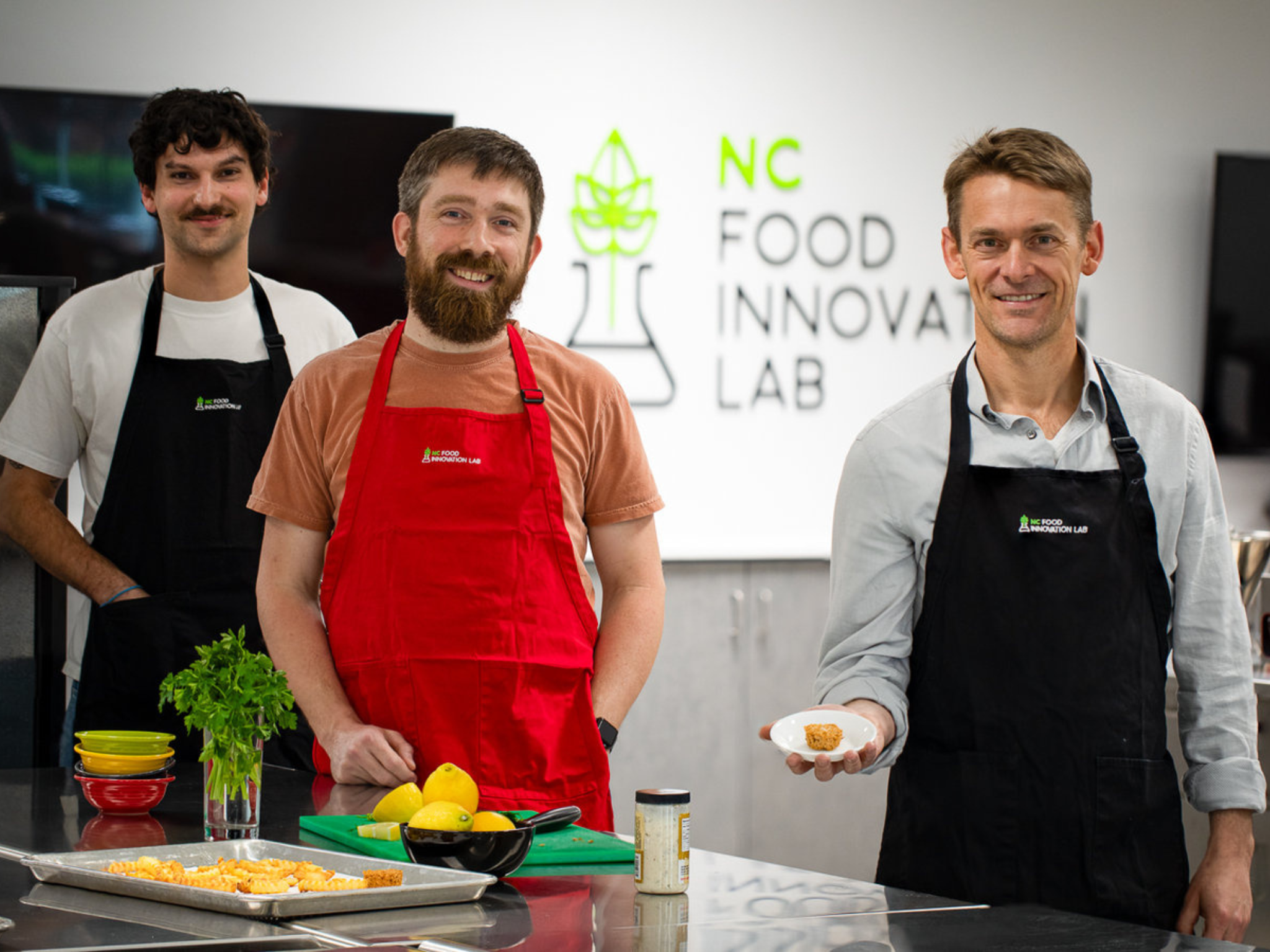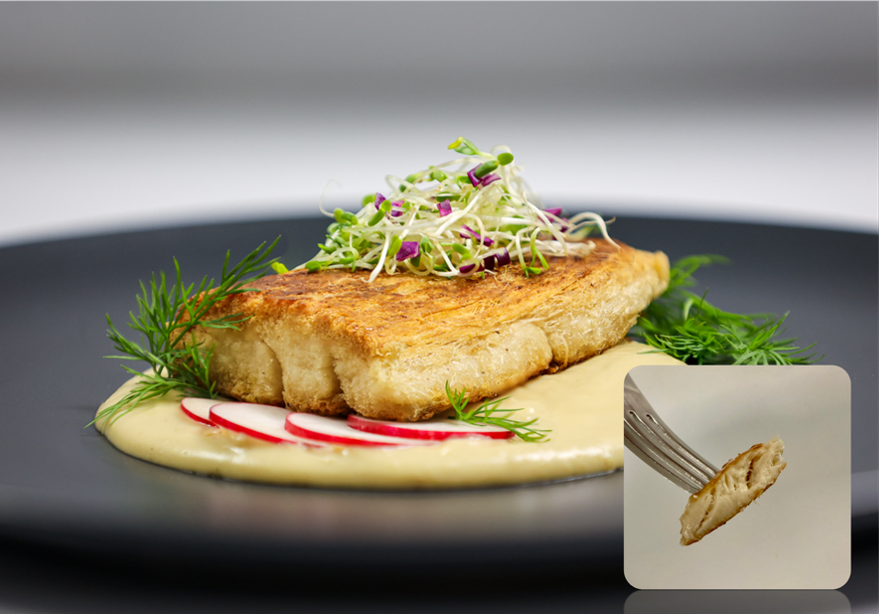
US food tech startup Atlantic Fish Co has raised $1.2M in new funding, which it will use to optimise its cultivated seafood fillets, scope out partnerships, and prepare regulatory filings.
In its bid to “actually move the needle” in the $400B global seafood market, Atlantic Fish Co has attracted fresh funding for its high-value cultivated white fish.
The North Carolina-based startup has secured seed investment from Katapult Ocean, Alwyn Capital, DMV Capital, and the Georgetown Angel Investment Network (among others). In addition, it has received $305,000 as part of a Small Business Innovation Research grant from the National Science Foundation.
Combined, the company has hooked $1.2M in financing for this round, taking its total raised to $2.3M to date. It will use the capital to make progress on technical, regulatory and commercialisation efforts.
“This $1.2M enables us to finalise our go-to-market product and secure the regulatory greenlights to launch in the US,” said co-founder and CEO Doug Grant.
‘We can’t make more ocean’

Founded in 2022 by Grant and CSO Trevor Ham, Atlantic Fish Co’s cell culture platform works across any species, having demonstrated the technology with both seafood and terrestrial proteins. But its initial focus is on high-value whitefish, specifically black sea bass.
The startup takes a small sample from fish muscles and selects the healthier cells. These are then fed on the same food-grade nutrients they’d receive inside fish, enabling them to grow into lean muscle in a bioreactor.
Atlantic Fish Co’s end products are “restaurant-quality” fillets that do away with the harmful contaminants found in conventional seafood, like mercury, microplastics, antibiotics or parasites.
The firm first developed a black sea bass prototype in partnership with the North Carolina Food Innovation Lab last year, hosting a tasting event at the latter’s facility in Kannapolis.
The product is targeting an overstretched seafood industry – nearly 90% of global fish stocks are at maximum capacity or overfished. One study suggests that we could be heading towards a complete collapse of ocean life by 2048, driven primarily by overfishing. Climate change is worsening things, pushing fish to the high seas where they’re likely to be overexploited, causing diseases, and driving up prices.
“We’re solving a huge problem. Seafood is under real pressure,” said Grant. “We can make a lot of things, but we can’t make more ocean.”
And consumers recognise this. A 2024 survey by the Marine Stewardship Council found that 30% of people had been eating less seafood in the last two years, with 48% concerned about overfishing and 35% worried about climate change impacts. Over 80%, meanwhile, had changed their dietary habits in this period, and 43% did so for sustainability reasons.
Atlantic Fish Co preps FDA submission and chef collaborations

Sam Selig, investment manager at Katapult Ocean, said his firm was impressed by Atlantic Fish Co’s technical milestones and its advancements of a “breakthrough technology in cultivated protein”.
“Supporting the initial commercialisation of their sustainable white fish filet – and their broader vision to expand across proteins – aligns perfectly with our mission to back ocean- and health-friendly blue foods with meaningful market opportunity and impact,” he remarked.
The $1.2M round may seem small at first, but given the trials of the cultivated protein sector, it’s a notable achievement. Startups in this space have seen investment fall off a cliff in recent years, down from $1.3B in 2021 to just $139M in 2024 (and a mere $36M so far this year).
“The cultivated meat sector has learned expensive lessons, and there are still only a handful of products on the market,” said Grant. “We’ve stayed capital-efficient with disciplined milestones and focused on seafood, the category best positioned to break through.”
Atlantic Fish Co will use the funds to optimise its whitefish fillets and refine their texture, flavour and nutritional profile, prepare for its regulatory submissions (including pre-market consultation with the US Food and Drug Administration), and establish partnerships with chefs to validate product market fit and open up initial distribution channels.
Despite fish innovations accounting for a fraction of the overall alternative protein market, it has been a milestone year for cultivated seafood. In the US, Wildtype received the green light to sell its salmon, which is now available on restaurant menus in several states. Meanwhile, BlueNalu filed for FDA approval for its bluefin tuna, while also eyeing the European market.
Speaking of which, Germany’s Bluu Seafood teamed up with spice manufacturer Van Hees to create hybrid proteins combining cultured fish cells with plant-based ingredients. And in India, Biokraft Foods debuted cultivated seafood prototypes in collaboration with a government-based research institute.
The post Atlantic Fish Co Nets $1.2M to Advance Regulatory Efforts for Cultivated Seafood appeared first on Green Queen.
This post was originally published on Green Queen.